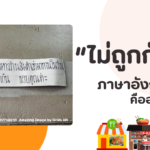| 彼女 | - (かのじょ) (pn) (1) she; her; (adj-no) (2) her; (3) girl friend; girlfriend; sweetheart; (P) [EDICT]
|
| が | - () (prt) (positive sentence end) I dare say; (negative sentence end) though, honestly [EDICT]
- () (suf,v5r) (1) to feel (on adj-stem to represent a third party's apparent emotion); (2) to behave as if one were [EDICT]
- () (n) scree [EDICT]
- () (adv-to) (1) (on-mim) thump; thud (dull sound representing something being hit); (2) severe; difficult; hard [EDICT]
- (我) (n) (1) {Buddh} obstinacy; (2) atman; the self; the ego [EDICT]
- (画) (n) picture; drawing; painting; sketch [EDICT]
- (蛾) (n) moth [EDICT]
- (賀) (n) (See 賀の祝) congratulation [EDICT]
- (雅) (n,adj-na) (1) (ant [EDICT]
|
| わかる | - (分かる) (v5r,vi) (1) to be understood; to be comprehended; to be grasped; (2) to become clear; to be known; to be discovered; to be realized; to be realised; to be found out; (P) [EDICT]
- (分る) (v5r,vi) (1) to be understood; to be comprehended; to be grasped; (2) to become clear; to be known; to be discovered; to be realized; to be realised; to be found out; (P) [EDICT]
|
| ない | - () (exp) (1) (See ませんか) (used to ask a question in the negative) won't (hasn't, isn't, doesn't, etc.); (2) (used to make invitations, express desires or give indirect commands) won't you [EDICT]
- () (conj,aux) (1) (See ない) without doing ...; (aux) (2) used in sentence-final position as an indirect prohibition [EDICT]
- (内) (suf) inside; within [EDICT]
- (亡い) (adj-i) (See 無い) dead [EDICT]
- (無い) (adj-i) (1) (uk) (See 亡い) nonexistent; not being (there); (2) unpossessed; unowned; not had; (3) (See またとない) unique; (4) (as ...ことがない, etc.) indicates negation, inexperience, unnecessariness or impossibility; (aux-adj) (5) (See ない) (after the ren'youkei form of an adjective) not ...; (6) (after the -te form of a verb) to not be...; to have not ...; (P) [EDICT]
|
| こと | - () (adv-to) (on-mim) clunk; thump [EDICT]
- (古都) (n) ancient city; former capital; (P) [EDICT]
- (糊塗) (n,vs) covering up; glossing over [EDICT]
|
| は | - (葉) ใบไม้ [LongdoJP]
- () (int) (1) (pol) yes; (2) OK (used to get attention prior to an utterance); okay; (3) giddy-up; giddap; (P) [EDICT]
- () (v5r,aux-v,suf) (hon) (ksb [EDICT]
- () (suf) (ksb [EDICT]
- (歯) (n) tooth; (P) [EDICT]
- (刃) (n) edge (of a knife or sword); (P) [EDICT]
- (派) (n,n-suf) clique; faction; school; (P) [EDICT]
- (破) (n) (See 序破急) (in gagaku or noh) middle section of a song [EDICT]
- (葉) (n) leaf; (P) [EDICT]
|
| 珍しい | - (めずらしい) แปลก, ประหลาด, ไม่ค่อยเห็น [LongdoJP]
- (めずらしい) (adj-i) (1) unusual; rare; curious; (2) new; novel; (3) fine (e.g. gift); (P) [EDICT]
|
| 事 | - (こと(P);こん) (n) (1) thing; matter; (2) incident; occurrence; event; something serious; trouble; crisis; (3) circumstances; situation; state of affairs; (4) work; business; affair; (5) after an inflectable word, creates a noun phrase indicating something the speaker does not feel close to; (n-suf) (6) (See 事・ごと・1) nominalizing suffix; (7) (See 事・ごと・2) pretending to ...; playing make-believe ...; (P) [EDICT]
- (ごと) (suf) (1) (See 事・こと・6) nominalizing suffix; (2) (See 事・こと・7) pretending to ...; playing make-believe ... [EDICT]
- (じ) (n) {Buddh} (See 理・2) individual concrete phenomenon (as opposed to a general principle) [EDICT]
- (shì, ㄕˋ) matter; thing; item; work; affair [CE-DICT]
|
| だ | - () (prt) (1) (as …たり…たり, after the ren'youkei forms of multiple verbs) -ing and -ing (e.g. "coming and going"); (2) (used adverbially) doing such things as...; (3) (as …たり…たり at sentence-end, after the ren'youkei forms of a repeated verb) expresses a command; (aux-v) (4) (たり only) (arch) (from とあり) (See たる) (after a noun) to be; (5) (たり only) (arch) (from 〜てあり, after the ren'youkei form of a verb) indicates completion or continuation of an action; (P) [EDICT]
- () (prt) (1) (fam) marks wh-question (what, where, who); (2) (chn) strengthens one's judgment or conclusion; (P) [EDICT]
- () (exp) if it's the case; (P) [EDICT]
- () (prt) even [EDICT]
- () (suf,prt) and; or; and the like; and so forth; and what not; (P) [EDICT]
- () (exp) (1) (See でしょう) seems; I think; I guess; I wonder; I hope; (2) don't you agree?; I thought you'd say that!; (P) [EDICT]
- () (n) (col) (abbr) (See 友達) friend [EDICT]
- () (n) undercut (of a machined edge) [EDICT]
- (駄) (pref) (1) (See 駄文・1) poor; low-grade; trivial; insignificant; worthless; (n-suf,ctr) (2) (See 一駄) load; pack; horse load; (n) (3) packhorse [EDICT]
- (兌) (n) dui (one of the trigrams of the I Ching [EDICT]
|







